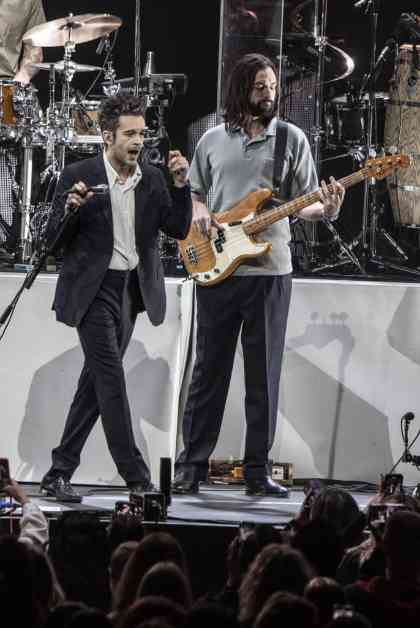The 1975, a popular band, is facing a lawsuit following an incident involving lead singer Matty Healy at a music festival in Malaysia. During their performance at the Good Vibes Festival in Kuala Lumpur, Healy openly criticized Malaysia’s anti-homosexuality laws and proceeded to kiss his bandmate, Ross MacDonald, on stage. This act led to the shutdown of the festival and sparked controversy.
The festival organizer, Future Sound Asia, has filed a lawsuit against The 1975 Productions LLP and all band members, seeking 1.9 million pounds in damages for breach of contract and losses incurred due to the incident. The legal action was taken in the High Court in London by lawyer David Dinesh Mathew on behalf of FSA.
Following the incident, the Malaysian government condemned Healy’s behavior, resulting in the band being blacklisted from the country and the cancellation of the three-day festival. Additionally, members of the LGBTQ+ community expressed disappointment in The 1975, stating that Healy’s actions could have jeopardized the safety of activists advocating for LGBTQ+ rights in Malaysia.
According to the lawsuit, FSA had previously outlined performance guidelines to the band, which included refraining from swearing, smoking, drinking alcohol, discussing politics or religion, and engaging in indecent behavior such as kissing on stage. Despite being aware of these rules, The 1975 went against them during their headline performance at the festival.
This incident has sparked conversations about freedom of expression, LGBTQ+ rights, and the responsibilities of artists when performing in countries with strict laws and regulations. It raises questions about the role of musicians in advocating for social change and the potential consequences of their actions on a global scale. The lawsuit serves as a reminder of the impact that artists’ behavior can have beyond the realm of music and entertainment, highlighting the need for awareness and sensitivity when engaging with controversial topics in different cultural contexts.
